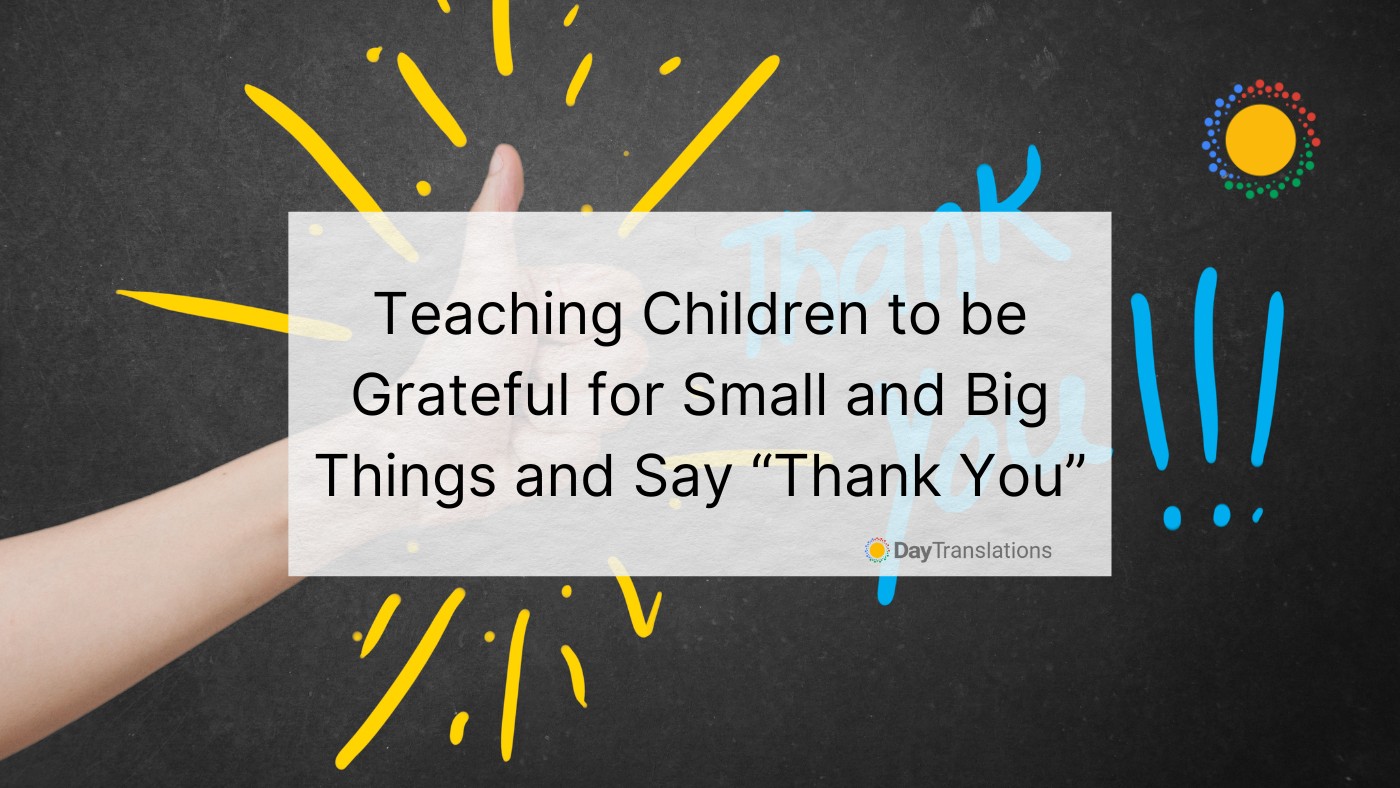In this day and age when most things are done electronically, the simplest polite gesture as saying thank you is sometimes forgotten. Children seem to think that the phrase is passé. Parents, leading busy lives juggling work and home, oftentimes leave it to the school teachers to teach their children the basic courtesies. To be grateful for everything, and saying thanks give children huge benefits, from having better outlook in life to better performance in school to less depression.
Beginning at home
In a modern San Francisco home the Branstens were having dinner and every night it was their normal practice to give thanks before they eat. Each member of the family recite why he or she is thankful – for things, for food, for people. Even friends that come over for dinner join in their nightly ritual. Peter Bransten, a lawyer and his wife, Leela who is with an education non-profit organization couldn’t be happier, for this is exactly the reason why they are doing the ritual – for their children to be grateful.
Parents need to realize that they have become less grateful. Therefore, to raise the awareness level and for their kids to be able to express gratefulness, parents should be the models of gratefulness themselves.
Positive results of studies
A preview of a study that will be published in School Psychology Review in 2014 revealed that a group of 122 children were taught the concepts of giving and gratitude for a week. Their thankfulness was heightened, with 25% of the students in the study group choosing to write thank you notes and 44% of them wrote notes to say thanks after they were given the option following a presentation during a PTA meeting.
In another study of over 1,000 high school students living in the outskirts of New York City, which was published in the Journal of Happiness Study in 2010, students with high gratitude levels displayed more positive outlook, were less depressed and envious and had higher GPAs. This was the exact opposite of those students in the study group that associated happiness and success with owning and buying things.
Materialism is a culprit
Internet shopping makes it very easy for people to acquire material things. The value of owning something today is almost fleeting, because there is no longer any hardship involved before you can buy something. In the past, children learned to save to buy a toy they like. They had to do chores before their parents would consent to buying a new pair of shoes that’s in vogue.
In a Personality and Social Psychology Bulletin study done in 2013 among more than 300,000 high school seniors, results revealed that from 1976 to 2007, the desire for more money increased in the mid-1970s while there was a significant decrease in the respondents’ willingness to work hard to earn money. The importance placed on money and owning nice things significantly increased between 2005 and 2007.
Giving thanks should not be done only during the holidays. It should be done every day. The best way to do this is to start right now, by saying, “I’m grateful. Thank you.”














Sorry, the comment form is closed at this time.